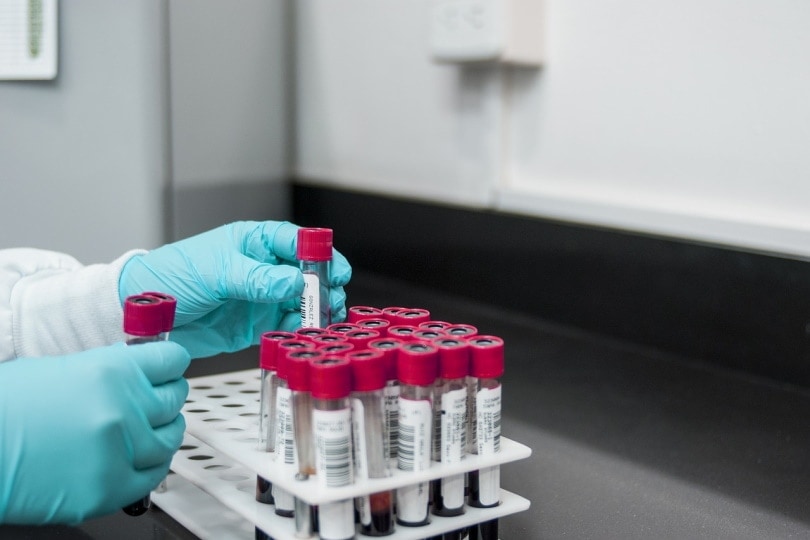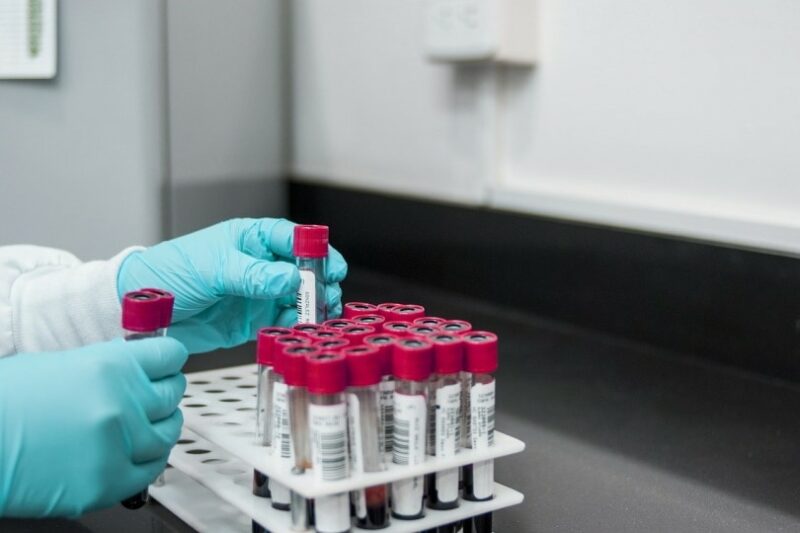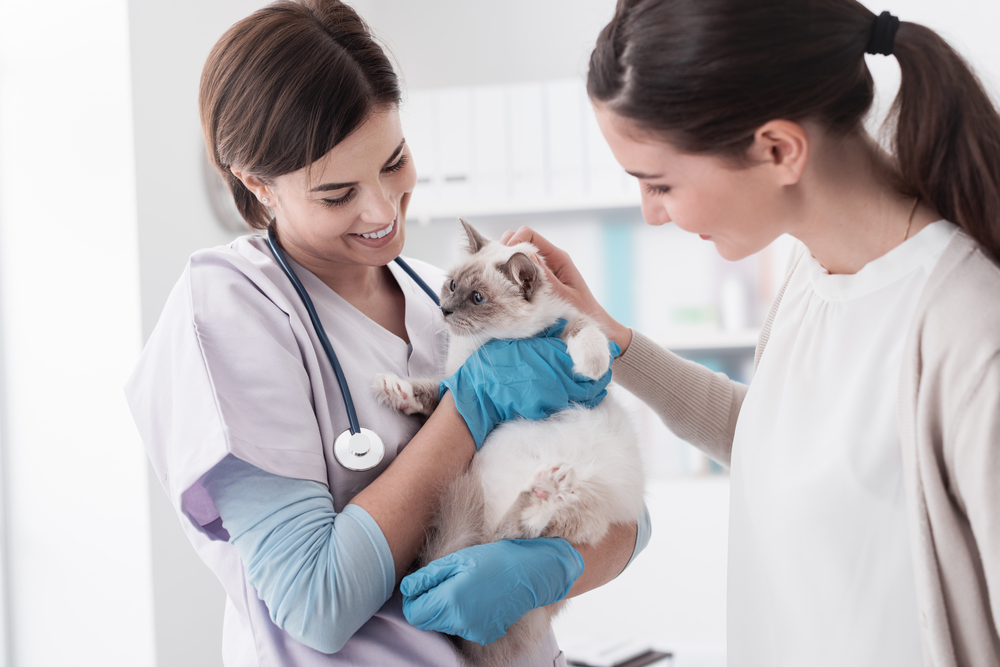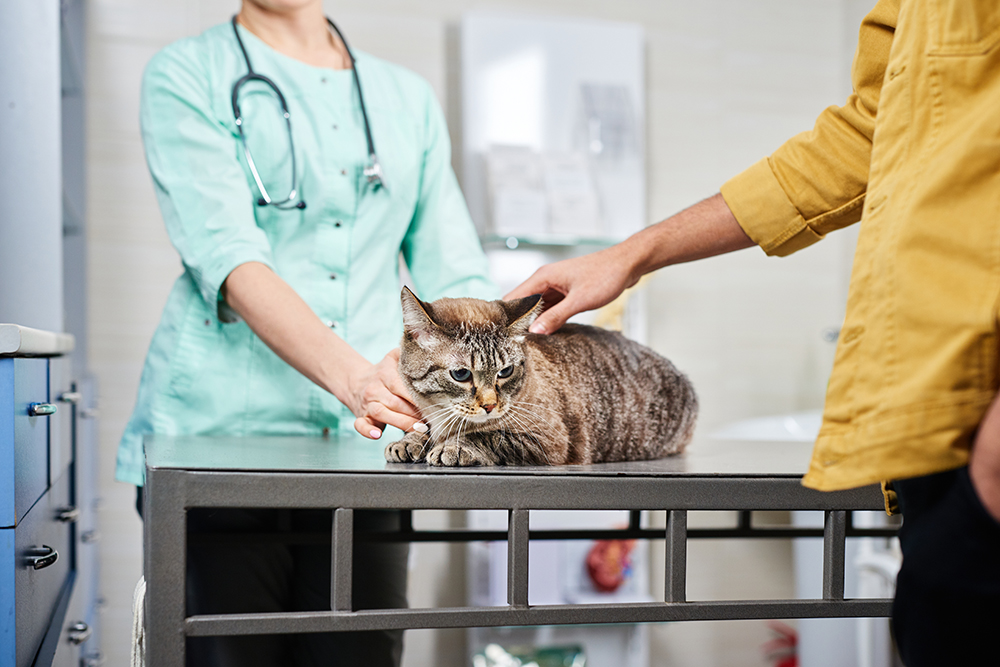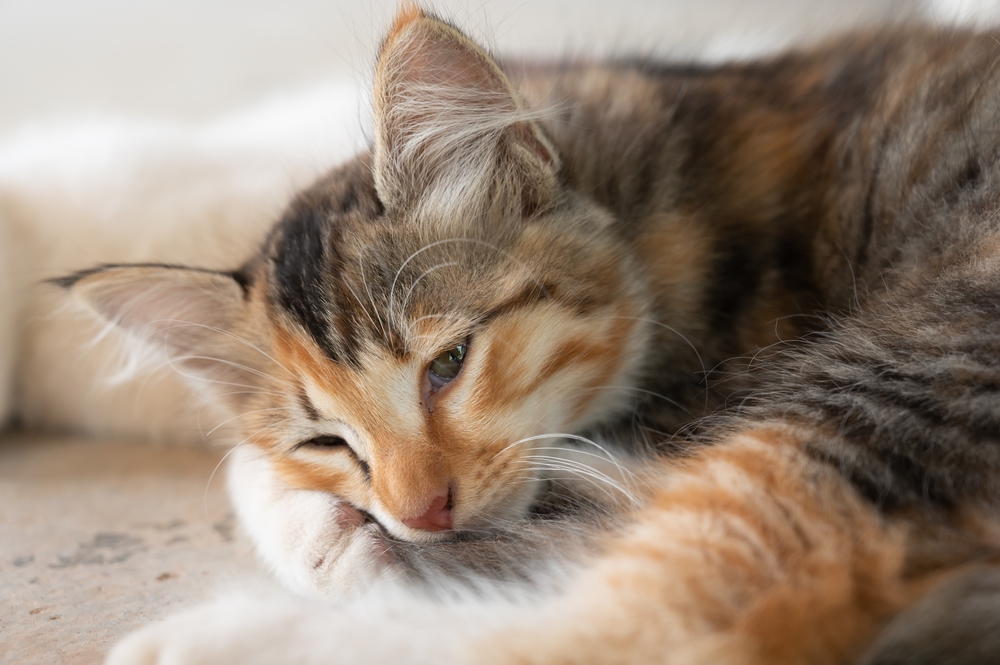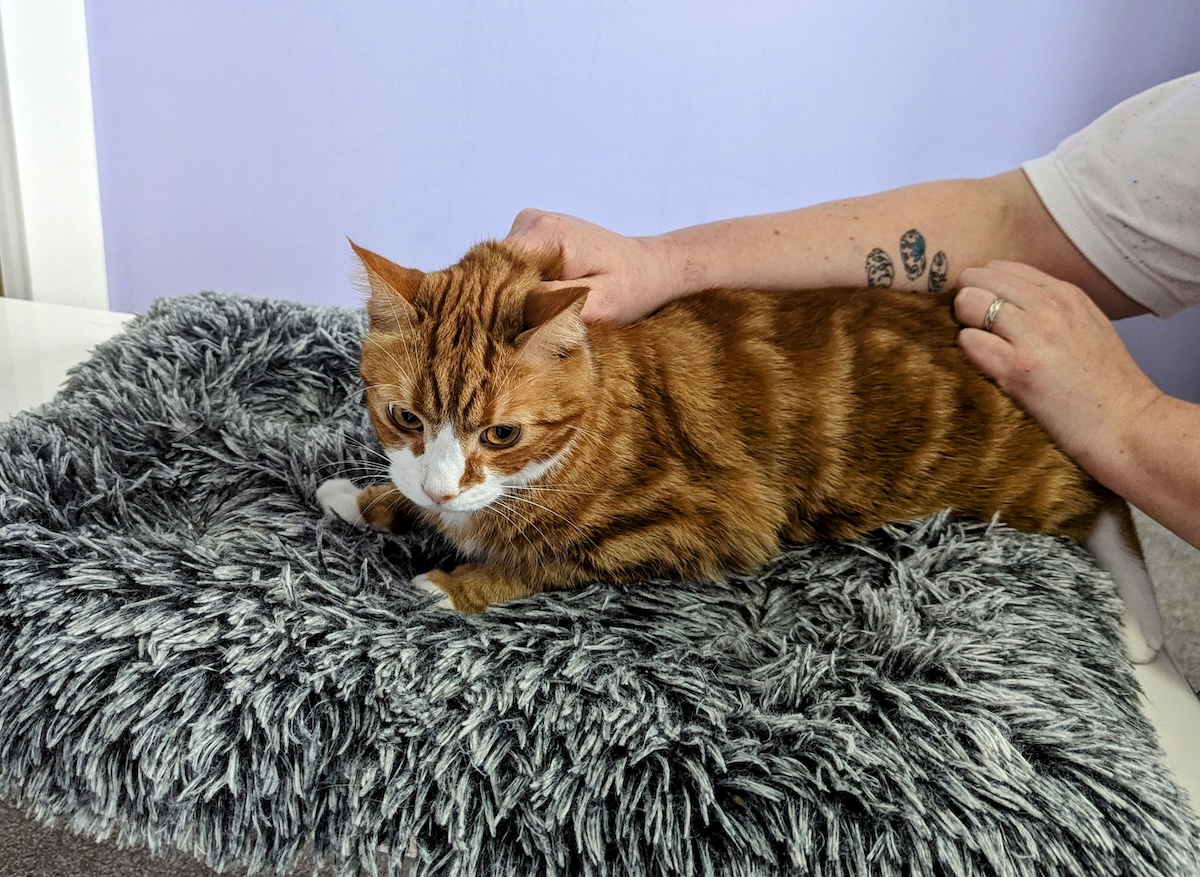If your vet recommends blood tests, it’s easy to get confused about their purpose. After all, there are many types of blood tests, and on the patient’s end, they all look the same. Your vet draws a bit of blood from your pet, and they later come back to tell you if everything is all right. However, each type of blood test has a different purpose and cost. A blood test for a cat can cost anywhere from $25 to $250 or more, depending on the type. Being informed about the different kinds of blood tests can help you know what to expect.

The Importance of Blood Tests
Blood says a lot about health. Examining a blood sample can tell you about your cat’s thyroid hormones, glucose levels, kidney status, white and red blood cell counts, and more. These clues can help your vet narrow down a health issue in your pet or diagnose a problem before signs become visible. There are also quick or so-called “snap” tests that check for certain feline viral diseases, such as feline leukemia or immunodeficiency. There are even snap tests that check a cat’s heart status and can indicate if there is underlying heart disease.
Vets usually suggest a blood test if your cat shows any signs of general or organ system illness, a thyroid disorder, feline diabetes, or other health issues that blood tests may be able to detect. Blood tests are usually recommended before surgeries and other medical procedures. Some vets also recommend annual blood tests after your cat reaches a certain age.
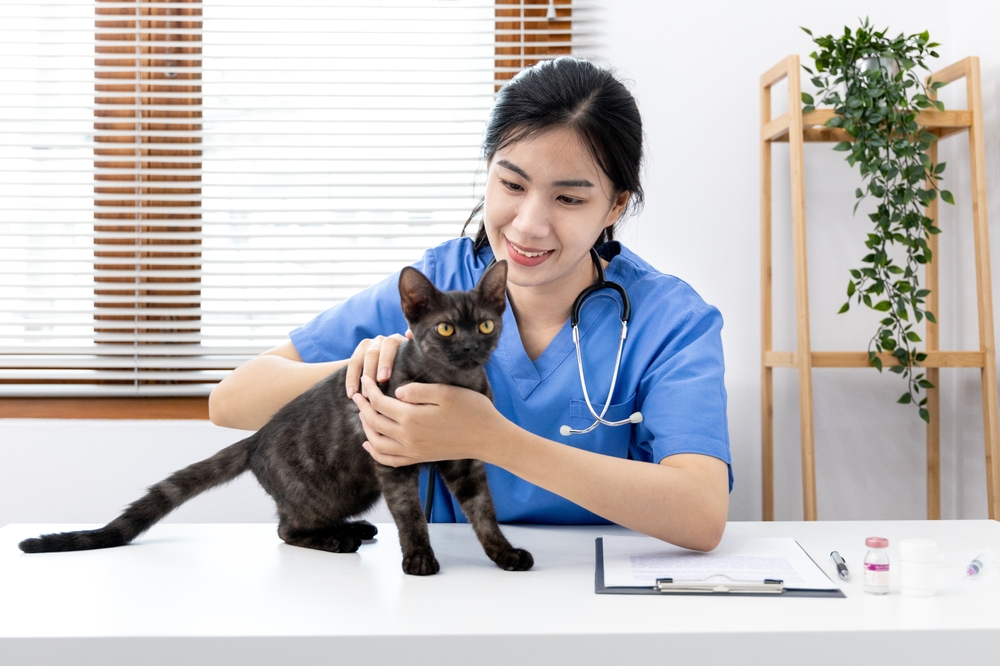
How Much Does a Blood Test Cost?
The cost of a blood test varies widely. Several tests fall under routine blood work, while others are recommended only in certain circumstances, and each has a different cost. The cheapest blood test is usually a single blood glucose test, which measures blood sugar levels. This often costs between $20 and $50. Other blood tests may include a biochemistry panel, which involves a varying range of liver and kidney parameters and proteins; electrolytes, CBC (complete blood count), or hematology panel, which measures red and white cells and platelets; and various snap tests, such as FelV/FIV tests or those used for investigating feline pancreatitis.
If your cat needs several tests, they are often combined into a specific blood work panel. This can cost anywhere from $100 to $300 or more, depending on the tests needed. Besides how many parameters get tested, one factor that influences the cost is whether the results can be obtained in-house or whether they will be sent to a specialized lab. Large veterinary clinics are more likely to have specialized equipment, but there may still be tests that they cannot do in-house.
Sending blood to an outside lab increases the price by $100 or more, depending on the test in question, so if your vet quotes you a higher price than you expect, that might be why. Speak to your veterinarian about all the tests required for your cat and ask for a total estimate, so you generally know what to expect.
Here are the most common types of blood tests and their estimated prices:
| Blood test | Purpose | Cost |
| Blood glucose | Measures blood sugar; used to monitor feline diabetes | $15–50 |
| CBC/hematology | Counts red and white blood cells to measure immune health and check for anemia | $50–100 |
| FELV/FIV test | Looks for viral protein or presence of antibodies against the viral disease | $75–150 |
| PCV | Measures red blood cells to check for anemia | $30–100 |
| T4 | Measures thyroid hormone levels | $45–100 |
| Serum chemistry/biochemistry | Measures electrolytes, enzymes, and proteins; usually combined with other tests | $100–250 |
Disclaimer: Please be aware that there may be a great variation in blood test pricing based on the parameters tested, the need to send the blood to an external lab, the individual clinic pricing, location, and other factors. For accurate estimates, speak to your vet.
Additional Costs to Anticipate
Since blood tests are used as a diagnostic tool, they often go hand-in-hand with other tests. For example, your vet might combine blood and urine tests, offering both together at a slightly higher price.
If your cat’s blood test is part of a routine checkup, there will also be a checkup fee, which includes the consultation and clinical examination. These fees often run at around $50–100 for a routine check, and they will be higher if your cat is seen as an emergency.
Blood test results can help diagnose many health issues. If your cat is suffering from unusual or nonspecific signs that may indicate several health issues, a blood test is often the first step in giving your vet direction for further investigations.
Even if an issue is easily diagnosed by your vet just checking out your kitty, blood tests often complement diagnosis and help in formulating an adequate treatment plan. For example, if your cat is suffering from an overactive thyroid or hyperthyroidism and your vet can feel a goiter, or an enlarged thyroid gland, on the neck, they will still need to check your pet’s thyroid hormone value before establishing a treatment dose.
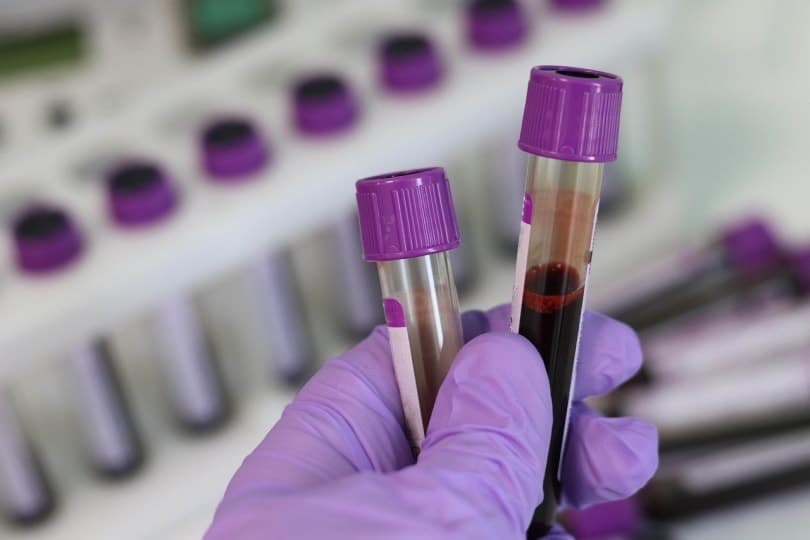

How Often Do Cats Need Blood Work?
The frequency of blood work depends on various factors. Vets often recommend routine blood work annually once your cat reaches a certain age. This can help you diagnose problems before the effects on health become visible. However, many blood tests are usually performed as needed, when your cat isn’t feeling well or if they are suffering from a certain illness that requires regular monitoring.
Another common reason to do blood work is to prepare for surgery. This ensures that your veterinarian can pick the safest choice of anesthetic agents suitable for your cat and their health, in order to avoid any adverse effects. Yet another reason to do a blood test is if your vet is trying to diagnose a health problem. Your cat might need one specific blood test, like for feline leukemia, or your vet might recommend a broad blood panel.
Does Pet Insurance Cover Blood Tests?
Many pet owners are turning to pet insurance to help cover medical costs and keep their pets safe. Every pet insurance policy is different, and many providers offer customizable plans to help you choose the coverage you need.
It’s difficult to generalize what is covered by insurance. However, since blood tests are a routine part of vet work, most pet insurance covers most blood tests. Some policies cover every type of blood test, while others cover only the most common tests. It’s essential to check with your insurance provider to determine the specific types of tests it covers.

Blood Tests and Your Cat’s Health
Many of the health issues that can be diagnosed by blood tests will affect your cat’s overall health, especially if left untreated. This demonstrates the tests’ importance in diagnosing and managing your cat’s illness or ensuring that they are fit for a surgical procedure.
Feeding your cat healthy, nutritious food and ensuring that they are regularly being examined by the vet; receiving their preventative healthcare treatments, such as vaccines, flea-and-tick treatments, and dewormers; and maintaining a normal weight all contribute to your cat’s well-being.
Speak to your veterinarian about the preventative veterinary care recommended for your pet based on their age, lifestyle, health, and individual risks. Feline leukemia is a common illness in cats and is often diagnosed by a blood test. It can be life-threatening and severely impact a pet’s quality of life and their lifespan, but a vaccine can protect your cat.

Conclusion
The cost of a blood test depends on the number and specific types of tests your pet requires. If your cat needs bloodwork, being informed about the kinds of tests your vet recommends and what the results could mean can help you make wise decisions about medical care. Blood work can be a little scary for you and your cat, but it is an integral part of keeping your pet healthy.
Featured Image Credit: fernandozhiminaicela, Pixabay

